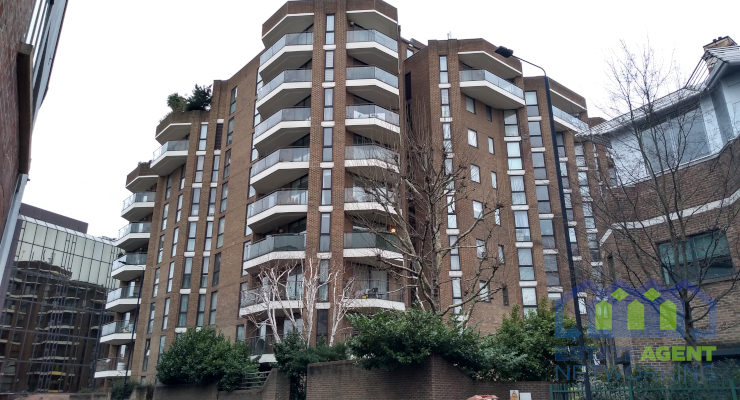How to Get Rid of Rats: Effective Rat Control and Pest Management Tips
Rats are not just a nuisance; they are also carriers of various diseases and can cause significant damage to your property.
Effective rat control is crucial to maintaining a healthy and safe environment both in your home and garden.
This comprehensive guide will explore what attracts rats to your property, how to identify a rat infestation, effective ways to control rats, and preventive measures to keep rats at bay.
Let’s dive into the details of effective rat control and pest management tips.
What Attracts Rats to Your Home?
Common Reasons for Rat Infestations
Understanding what attracts rats to your home is the first step in prevention. Rats need food, water, and shelter, and your home can provide all of these necessities.
Leftover food, overflowing trash bins, and leaky pipes are common reasons for rat infestations.
Additionally, cluttered spaces such as basements and attics are ideal nesting grounds for rats. Easy access to your property through cracks, holes, and open windows can also attract these rodents. Therefore, maintaining cleanliness and properly securing entry points are crucial in preventing rat infestations.
Types of Food that Attract Rats
Rats are not particularly picky eaters and will consume almost anything they come across. Common food items that attract rats include grains, fruits, nuts, and leftover scraps.
Even pet food can become a feast for these pests if left out overnight. Compost heaps, bird feed, and garden produce can also attract rats.
To prevent rats from invading your property, it is essential to store food in sealed containers, regularly clean up food spills, and manage compost heaps properly to limit their food sources.
Environmental Factors that Attract Rats
Certain environmental factors can make your home more attractive to rats. For instance, dense vegetation around your home can provide hiding spots for rats, while untrimmed trees and shrubs offer easy access to your roof and attic.
Poorly maintained pipes and drainage systems can provide water sources for rats, further encouraging them to stay. In urban areas, construction and demolition activities can displace rat populations, driving them to seek new shelters in nearby homes.
Ensuring a well-maintained environment around your property is key to deterring rats.
How Can You Identify Signs of a Rat Infestation?
Most Common Signs that Rats Are in Your Home
Identifying the presence of rats early on can save you from extensive damage and health risks. Common signs of a rat infestation include the presence of droppings, which may be scattered around food sources or nesting areas. You might also hear scurrying noises in the walls or ceiling, particularly at night, as rats are nocturnal creatures. Additionally, gnaw marks on furniture, wires, and other items indicate that rats are trying to trim their ever-growing teeth. Grease marks and tracks along walls and floors can also signal a rat problem in your home.
Identifying Rat Droppings and Gnaw Marks
Rat droppings are one of the most telling signs of a rat infestation. These droppings are typically dark, pellet-shaped, and about the size of a grain of rice. Finding fresh droppings is a clear indication that you have an active rat infestation. Gnaw marks, another common sign, can be found on wooden surfaces, plastic, and electrical wires. Rats chew on these materials to keep their teeth sharp and well-maintained. Identifying these signs early can help you implement effective rat control measures promptly.
What to Look for in a Rat Nest
Rats build nests in secluded, warm, and dark places such as attics, basements, and within wall cavities. These nests are typically constructed from shredded materials like paper, fabric, and insulation. If you come across a pile of such materials in a hidden corner of your home, it is likely a rat nest. Additionally, nests may be accompanied by droppings, a strong musky odor, and visible trails leading to food and water sources. Identifying and eliminating nests is crucial to getting rid of rats as quickly as possible.
What Are the Best Ways to Get Rid of Rats?
1: Effective Rat Traps to Control Rats
Traps are one of the most effective ways to get rid of rats. There are several types of rat traps available, including snap traps, glue traps, and electronic traps. Snap traps are traditional and highly effective; they work by snapping shut when a rat triggers the bait mechanism. Glue traps, while less humane, catch rats on a sticky surface from which they cannot escape. Electronic traps deliver a lethal electric shock to the rat. To maximize effectiveness, place traps along known rat trails and near nesting sites. Using the right bait, such as peanut butter or bacon, can increase the likelihood of trapping rats.
2: Using Rat Poison Safely and Effectively
Rat poison, or rodenticide, is another method for controlling rat populations. However, using rat poison comes with its own risks, such as accidental poisoning of pets or children, and the potential for rats to die in inaccessible areas, resulting in odors from dead rats. When using rat poison, it is crucial to follow the manufacturer’s instructions carefully. Place poison in tamper-resistant bait stations to prevent accidental ingestion by non-target animals. Always monitor the effectiveness of the poison and dispose of any dead rats promptly and safely to avoid secondary poisoning and contamination.
3: Hiring a Professional Pest Controller
If you are dealing with a severe rat infestation, hiring a professional pest controller may be the best option or you can use a DIY effective option such as Rat Baiting Station.
Professional pest control services have the expertise, experience, and tools to manage rat infestations effectively. They can identify and block access points, implement baiting and trapping strategies, and provide long-term prevention plans to keep rats from returning.
Additionally, a professional pest controller will ensure that pest control measures are carried out safely and humanely, protecting your home and family from potential hazards associated with DIY methods.
How Can You Prevent Rats from Coming Back?
1: Sealing Entry Points to Keep Rats Away
Preventing rats from entering your home is the best way to avoid future infestations. Start by inspecting your property for any gaps, cracks, or holes that rats could use to gain access. Seal these entry points with materials such as steel wool, wire mesh, or caulk. Pay close attention to areas around utility pipes, vents, and doors.
Regularly check and maintain these sealed points, especially after seasons of extreme weather that might cause wear and tear. By eliminating easy access, you can significantly reduce the chances of a rat infestation.
2: Proper Storage of Food and Waste
Properly storing food and managing waste is essential in preventing rats. Store food in airtight containers and keep them off the floor. Ensure that trash bins have tight-fitting lids and that they are emptied regularly. Avoid leaving pet food out overnight, and clean up any food spills immediately. In garden areas, secure compost heaps with lids and use rat-proof containers to store compostable materials. By limiting food availability, you can make your home less attractive to rats.
3: Maintaining Clean and Clutter-Free Environments
Maintaining a clean and clutter-free environment is one of the most effective ways to deter rats. Remove clutter from attics, basements, and garages, as these areas provide ideal nesting sites. Regularly vacuum and clean to remove food scraps and potential nesting materials. Keep outdoor areas tidy by trimming bushes, trees, and removing yard debris. Minimize dense vegetation and overgrown areas that can serve as hiding spots and access points. A well-maintained home and garden are less likely to attract rats, ensuring long-term pest control.
How Can You Manage Rats in the Garden?
1: Deter Rats from Compost Heaps
Compost heaps can be a magnet for rats due to the availability of food scraps. To deter rats from compost heaps, use rat-proof compost bins with secure lids. Avoid adding meat, fish, or cooked food to compost, as these items attract rats more than plant-based materials. Regularly turn the compost to aerate it and make it less hospitable for nesting. Place the compost bin on a raised platform or use mesh to prevent rats from burrowing underneath. By managing compost properly, you can reduce the likelihood of attracting rats to your garden.
2: Using Natural Rat Repellents in the Garden
Natural rat repellents can be an effective way to manage rats in the garden without resorting to poison. Plants such as mint, lavender, and marigolds are known to repel rats due to their strong scents. You can also use essential oils like peppermint oil and eucalyptus oil; soak cotton balls in these oils and place them around the garden. Another natural deterrent is predator urine, such as that from a fox or cat, which can be sprinkled around the garden perimeter. These natural methods can help repel rats and keep them away from your garden.
3: Making Your Garden Less Attractive to Rats
To make your garden less attractive to rats, ensure that there are no easily accessible food sources or potential nesting sites. Regularly harvest ripe fruits and vegetables, and dispose of fallen produce promptly. Feed garden birds sparingly and clean up any spillage around bird feeders. Remove piles of wood, leaves, and other yard debris that may serve as shelter for rats. Elevate garden sheds and stores so that rats cannot nest underneath them.
Conclusion:
By reducing hiding spots and food sources,you can deter rats from making your garden their home.









